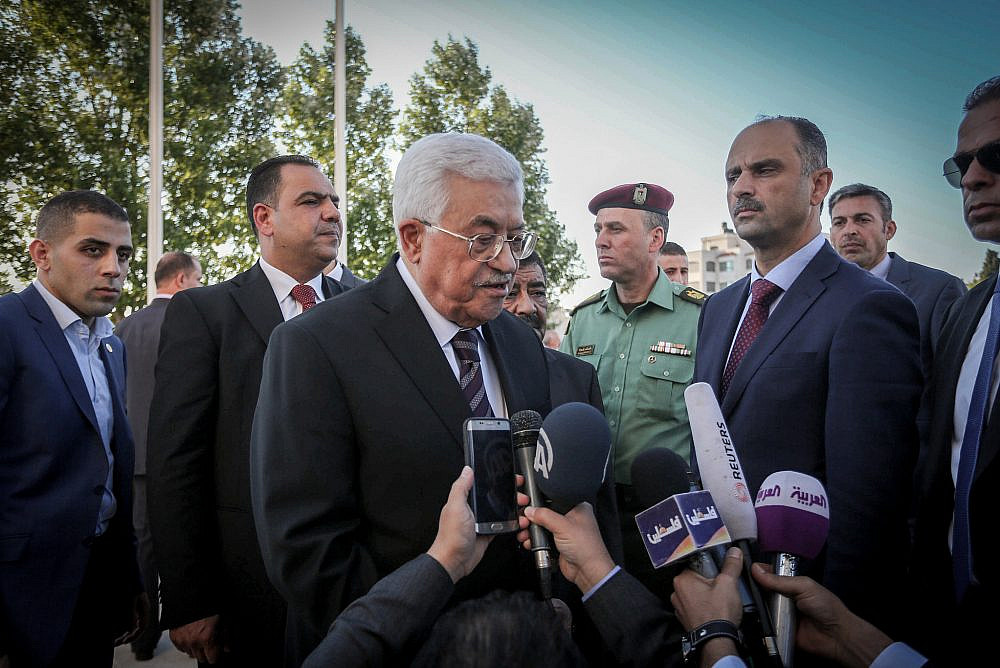After a year in power, Israel’s “government of change” has announced its intent to dissolve itself next week, setting in motion the country’s fifth election in three years. Coincidentally, the Palestinian government, too, has been undertaking a significant change of its own — but one that is trying to preclude any chance of bringing Palestinians to the ballot box.
For several years, speculation has been rife over who would succeed Mahmoud Abbas as the head of the Palestinian national movement’s major institutions, the Palestine Liberation Organization (PLO) and the Palestinian Authority (PA). At 86 years old, and with a life-long smoking habit and heart problems, the expectation that Abbas is not long for this world is a prudent one.
Rumors of Abbas’ imminent demise swirled once again last week after BBC Arabic tweeted that some of his responsibilities had been handed to his right-hand man, Hussein al-Sheikh, a controversial figure who has risen from relative obscurity to the inner-sanctum of decision-making at Abbas’s behest.
Although Abbas re-emerged once again to quash the rumors — first delivering a public message by telephone, and then through a photo-op with American officials in his office — this time discussions over his “succession” are unlikely to fade as quickly as in the past. That is because, over the last six months, Abbas has pushed through significant leadership changes in the sclerotic PLO that have clarified the picture over who might step into the leadership vacuum once he is gone.
In January, at Abbas’ bidding, the Fatah party’s Central Committee “unanimously nominated” al-Sheikh as its candidate for a vacant spot on the PLO’s Executive Committee, the institution’s top organ responsible for day-to-day decision-making, despite never having been a prominent leader within Fatah or the PLO. The appointment was confirmed within weeks by the PLO’s Central Council, a body that Abbas has spent years stacking with loyalists.
By May, Abbas had further promoted his protégé as the Executive Committee’s secretary general, sidestepping other long-standing members to become the man to lead the PLO if Abbas vacated the position. Additionally, al-Sheikh has taken on all types of extraordinary duties, such as acting as the main contact to foreign diplomats, including from the United States and Europe, and joining Abbas on all overseas travel. Virtually nothing important happens anymore without al-Sheikh’s presence.
Reduced to a triumvirate
While this type of clarity may quell some fears of a disorderly leadership vacuum arising in the future, the mere debate over “succession” and the nepotistic rise of al-Sheikh are emblematic of much that has gone wrong with Palestinian internal politics during the Abbas era and his legacy of undemocratic rule.
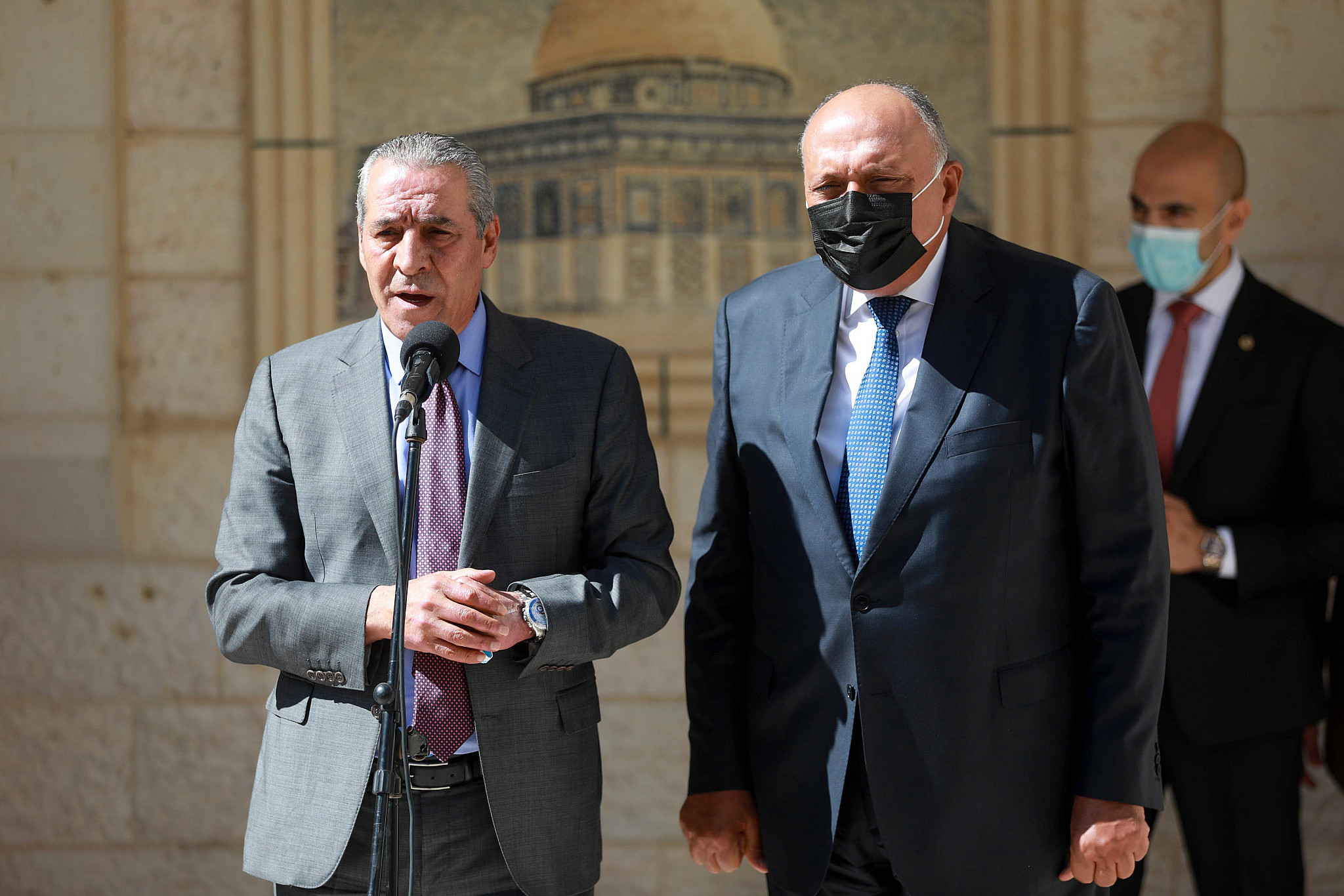
Throughout his tenure, Abbas — whose first term as PA president was supposed to expire in 2009 — has undermined the institutions he leads in order to monopolize power for himself and his closest advisors. After Hamas won a majority of seats in the 2006 parliamentary election — the last of its kind — Abbas’ attempts to overturn the outcome, with the backing of Western powers and Israel, led to a brief civil war, Fatah’s ejection from Gaza, and a calamitous rupture in Palestinian politics that endures to this day.
Since the Fatah-Hamas split, Abbas has repeatedly failed to reconcile the division and thwarted every attempt to hold a new election, including most recently in April 2021, after months of preparation and political organizing. At the same time, he has used his dual authorities as head of the PA and PLO to undermine the independence of the judiciary, dissolve the Palestinian Legislative Council (PLC) and illegally divest it of its powers, along with those of the PLO’s parliament, whose purviews have been reallocated to the PLO’s Central Council. Today, Abbas rules by fiat, relying on executive decrees without any judicial or legislative restraint.
As a result, the institutional processes that had once existed to ensure a smooth transition of power are no longer viable; all the while, public trust in governing institutions and the officials who lead them have suffered irreparable damage. Thus despite Abbas’s sudden efforts to secure a successor, a constitutional crisis still looms over his inevitable departure that could result in fierce political infighting for control.
No less problematic is what Abbas’s choice of successor signals for the future and what is at stake for the national liberation movement. Since 2007, al-Sheikh has headed the PA’s General Authority of Civil Affairs, which liaises with COGAT, the civilian branch of Israel’s military government in the occupied territories.
While the position does not have the cachet of prime minister or foreign minister, it has arguably become the most important government position next to the presidency; lacking any real sovereignty of its own, the PA — and the Palestinian public — ultimately rely on Israel’s military regime to function in every aspect of daily life. The man who oversees the pipeline of permits, visas, licenses, and other such necessities from Israel to the PA is therefore endowed with tremendous power and influence.
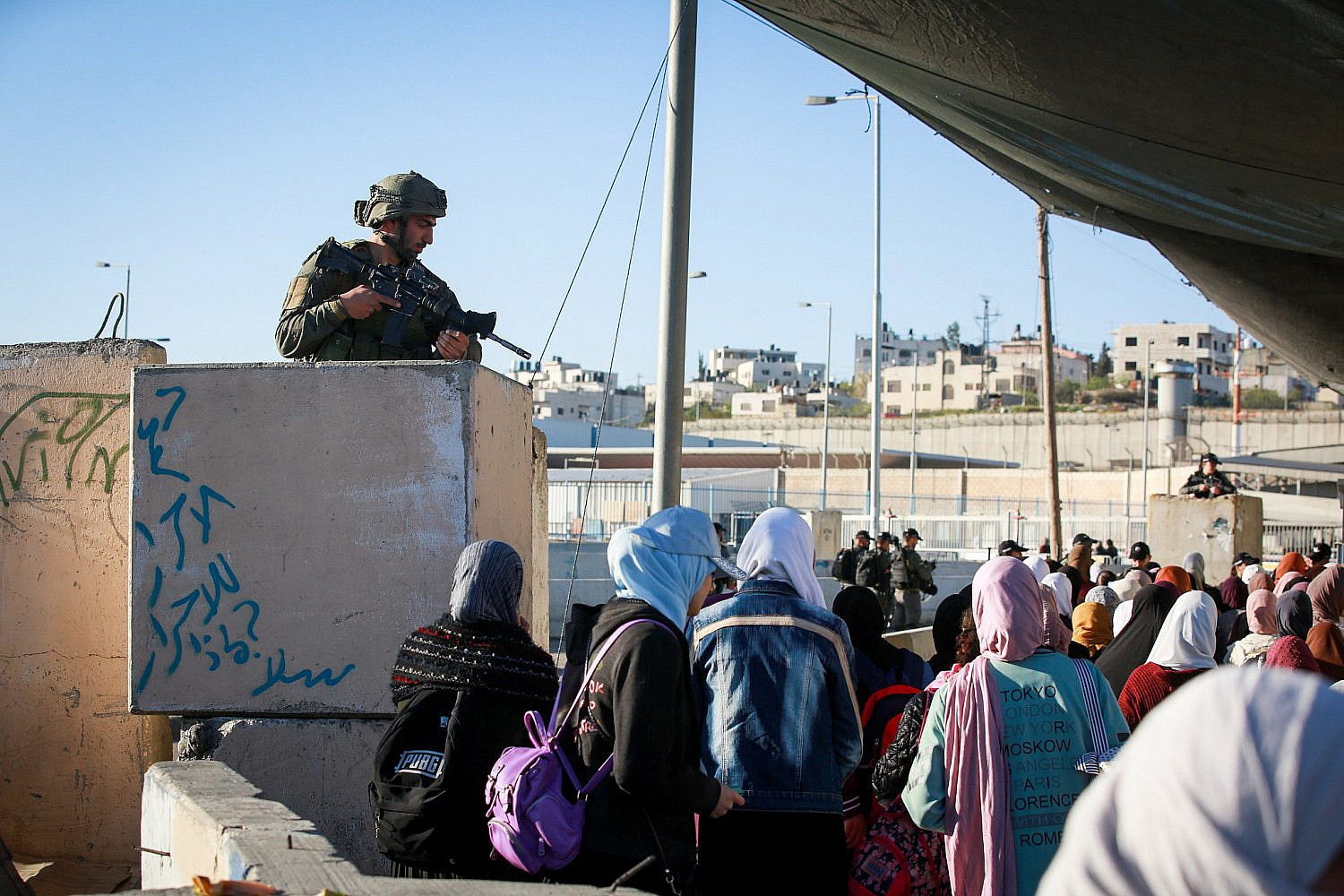
Al-Sheikh himself has signaled that he has little intention of changing the PA’s relationship with the Israeli regime. In a recent interview with the Associated Press, al-Sheikh said that the next Palestinian leader should come to office via the ballot box, but only if Israel allows for Palestinians in occupied East Jerusalem to vote. This same caveat was used by Abbas as a pretext to cancel the elections slated for May 2021, turning Israel’s annexation of the city into an expedient excuse to preserve the political status quo.
Al-Sheikh is not alone. His importance is matched by another man equally close to Abbas and to Israel, Majid al-Faraj, who leads one of the PA’s most powerful security agencies, the General Intelligence Service. Together with the president, they have formed a sort of triumvirate, in which one hand washes the other and both wash the face of Abbas.
The fact that the head of civil coordination and the head of security are at the top of the political pyramid is not a surprise to those who have watched the Palestinian statehood project disintegrate while Israel consolidates its permanent rule over the occupied West Bank and Gaza. Through this process, the PA has lost its original mandate, set by the Oslo Accords, as a proto-state entity on course to becoming a sovereign government.
As such, Palestinian political institutions have largely been reduced to the two above spheres — which are uncoincidentally of most importance to Israel and, therefore, to the Western backers of the PA keeping it afloat regardless of the absent peace process. If al-Sheikh and al-Faraj carry on the leadership mantle, it will herald a continuation of the status quo in which the PLO remains incapacitated and the PA is gradually denationalized and folded into Israel’s apartheid regime.
The last of his generation
Despite these maneuvers, the outcome being premeditated by Abbas is far from certain. On the Palestinian street, al-Sheikh and al-Faraj have very little support beyond their patronage networks; recent polling shows that nearly 75 percent of Palestinians in the occupied territories want Abbas to resign, and he likely retains more public support than they do.
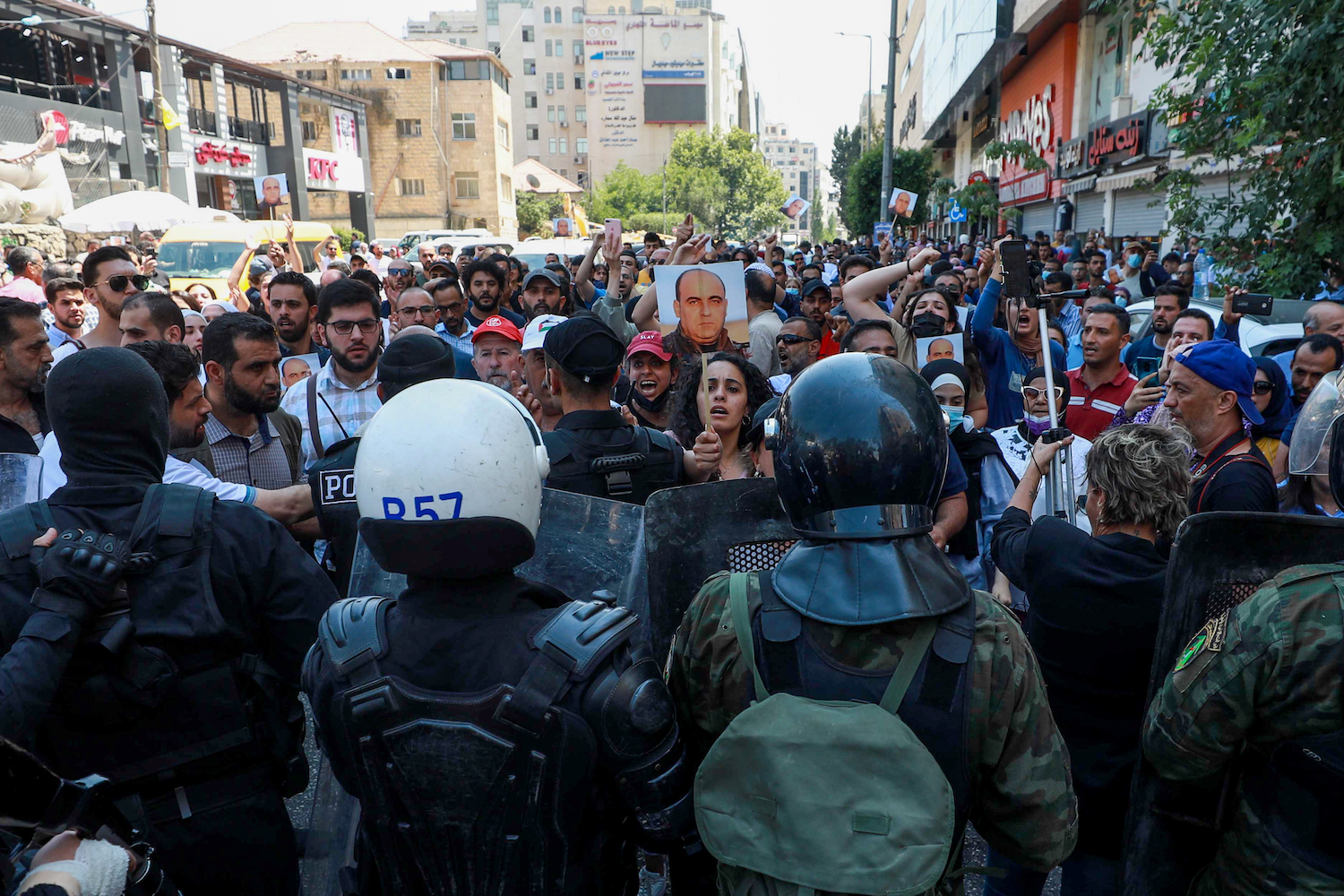
This is also true among the various political parties that make up the Palestinian body politic, including within Fatah itself, where other prominent figures are disgruntled by how they have been marginalized by the president. Indeed, Fatah has been splintering into several competing factions for years, all of which could contest for power once Abbas is out of the picture.
Hamas, too, is waiting in the wings with a legitimate claim to authority beyond its own ability to seize it through force or public support. Article 37 of the Palestinian Basic Law states that if the presidency is vacated, the speaker of parliament will become interim president for 60 days until an election can be held. Although Abbas dissolved the PLC in 2018, Hamas will almost certainly insist that its candidate should be the rightful interim president.
Moreover, Hamas’s popularity appears to be resurgent among younger Palestinians in the West Bank, particularly after it responded to Israeli provocations in East Jerusalem in May 2021 by engaging militarily and burnishing its credentials as a resistance movement — in sharp juxtaposition to the PA’s ongoing collaboration with Israel.
Beyond the PA, there is also the question over leadership of the PLO. Although al-Sheikh now holds the position of Secretary General, his appointment was controversial even among the party ranks. Not only did Abbas push it through unilaterally, but for years the PLO chairman has systematically manipulated the organization’s various internal bodies to serve his own interests, replacing detractors with loyalists willing to rubber stamp his every decision and validate his continued rule in the absence of a popular mandate.
As a result, there are now serious questions about the PLO’s legitimacy as the “sole representative” of the Palestinian people on the international stage, a title conferred on it since the 1970s and even recognized by Israel in the Oslo Accords.
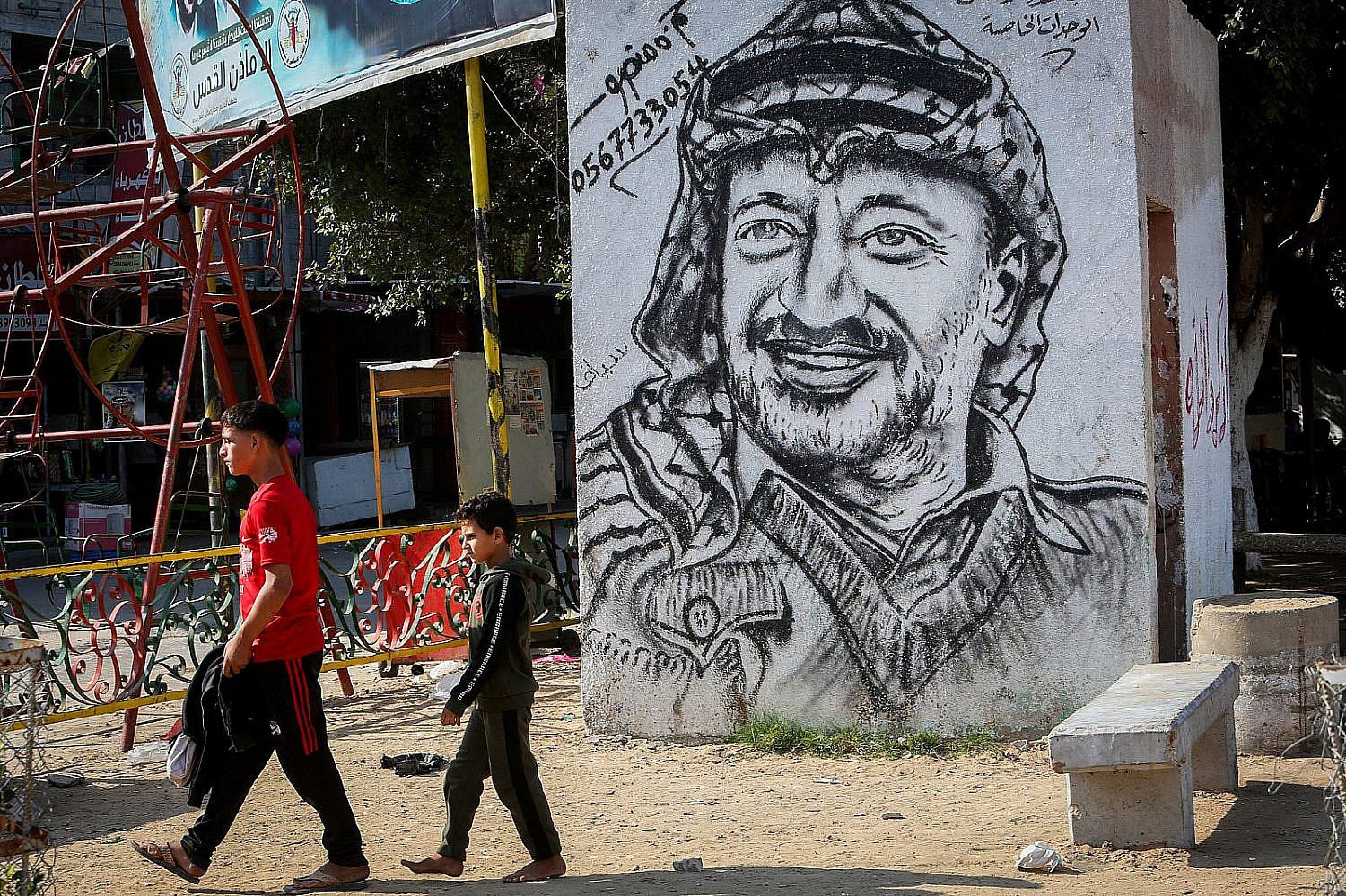
Today, most organizing against Israeli occupation and apartheid happens outside of the PLO through grassroots and civil society mobilization. Virtually none of the Palestinians’ brightest young leaders, activists, and organizers have been cultivated within the PLO’s formal structures, making the organization less relevant than ever. The transfer of PLO leadership to a person like al-Sheikh risks delivering another major blow to the organization and further atomizing the national liberation movement.
What remains clear is that Abbas is the last of his generation, a political figure whose legitimacy has been intimately tied up with the founding fathers of Fatah and the PLO, as well as the driving forces behind the Oslo peace process. With that process in shambles and his advisors being seriously compromised by their close affiliation with Israel, their credibility among most Palestinians is close to nil. And without some formal blueprint to determining the fate of Palestinian politics while Abbas is still alive — namely, free and fair elections — the door will be open to all kinds of uncharted possibilities, including internecine fighting among those who aspire to succeed him.


